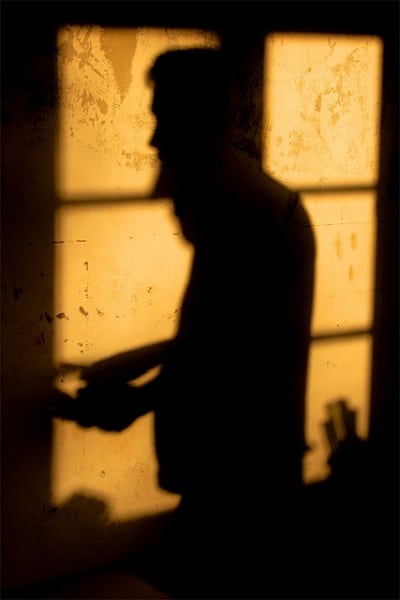In conversation, scholars cannot help but constantly raise the subject of their increasingly precarious working conditions and the anxieties that derive from them. From such conversations we regard academic precarity as a condition of vulnerability clearly related to a shifting labour market. Employment in this labour market is increasingly part-time and temporary, characterised by contracts that offer deteriorating conditions (e.g. graduate assistant contracts that do not cover annual leave or contribute to a pension, and previously permanent positions that are now contingent on funding). Likewise, an increasing number of fixed-term posts is offered that require a high number of teaching hours to the detriment of the research activities that make scholars permanently employable. It is precisely this notion of academic precarity defined chiefly through labour conditions that we would like to problematize here.
It is no coincidence that the most precarious of academics, early career scholars, are spearheading the few existing public initiatives to tackle precarity in universities (for instance, PrecAnthro). Alongside such initiatives, other scholars have recently positioned precarity within broader processes that are increasingly transforming universities into market-serving and market-like institutions (Wendy Brown 2015; Heatherington and Zerilli 2016; Colectivo Indocentia 2016), and assert the need to “take back the university” (MacKenna 2016; also see Ingold, this section). Elsewhere scholars have focused on how precarity impacts on, and manifests itself in, daily life and work, including fieldwork and the making of ethnography (see Gill 2009; Reddy 2012; MacKenna 2016).
Because conversations among colleagues at universities—conversations in which both co-authors participate—are the domain in which much is being currently discussed about precarity (whether or not it is named as such), we have become interested in exploring how academics acknowledge, narrate and experience their own conditions of precarity.
In this piece, we reflect on the notion of academic precarity and how academics through their actions may contribute to reproducing precarious conditions. As a result of our own positioning and networks, this reflection is based chiefly on what is going on at Western European and US university environments and specifically among anthropology circles. Being based in different countries has made us aware of the different local academic cultures and the need to take into account how these may shape precarity. One of us is a London-based academic currently on a fixed-term contract; the other is a Madrid-based independent and militant researcher[1] who also works as a teacher and writer (this occupational diversity being as much a choice as an imposition given the current paucity of permanent positions). Our discussions on the increasing precarious conditions of academics came directly out of our own experiences as well as a conference we both co-organized in 2014 on the politics of publishing: in which some participants stressed the close relationship between research, publishing and precarity.

Emerging precarious regimes of work in academia are no doubt related to the increasing flexibilization of labour and neoliberalization that characterize other sectors (e.g. the severe cuts to funding and the increasing adoption of entrepreneurial models within them). However, precarity in academia is deepened and exacerbated by other processes attuned with neoliberal logics and that are transforming universities and academic work in specific ways. The entrepreneurial models introduced by university authorities in the management of both universities and academic work have materialized in the quantification of milestones, outcomes and the value of academic work, as well as their constant audit (Shore and Wright 1999, 2015; Strathern 2000).
These transformations at universities are at the root of work intensification and anxiety among academics, as well as of what Dardot and Laval (2013: 261) have referred to as ‘entrepreneurial self-government’. Being valued and securing a stable position requires constantly improving your publication record (an intensification of the logic of ‘publish or perish’), obtaining external funding for your research (ever more valued if the grants cover academic staff time) and contributing to administrative and managerial tasks. These tasks add up to a substantial range of teaching and research duties—let alone the non-remunerated tasks that all academics contribute to in editorial work. While this free labour is part of academic regimes of work, it goes well beyond them: whether as a result of choice or not, unemployed academics, activists and militant researchers, social organizations, and freelancers involved in education, research and knowledge production, writing and publishing, contribute to academic life without a contract or any kind of pecuniary remuneration.
In this context, deteriorating labour conditions are just the most material and clear aspect of increasing precarity within academia. Yet there is something more going on here. The anxieties and intensification of work also exceed precarious forms of labour and can be regarded as the “precarization of existence” (Precarias a la Deriva 2004). Academics find it increasingly difficult to achieve a work-life balance and often see themselves compromising their personal, family and social life. The precarization of existence is epitomized by shared anxiety over time. Academics have largely embodied the logic of no time to slow down and constant production set in place by the entrepreneurial models adopted by universities.
Under these circumstances, aspects of life that limit academic production—such as motherhood, or the refusal or inability to relocate for the next job—may become an obstacle for advancing or even pursuing an academic career at all (Kendzior 2013-2016).

As raised by some established academics, these logics are not dependant on job stability and may be experienced by scholars regardless of their work status (Gill 2009; Beswick 2016). Yet they have more acute effects for those who live with the uncertainty of whether their contract will continue at the end of the year, or whether they might have to move or leave academia entirely. Unstable labour conditions make slowing down the rhythm of production a risky possibility for early career scholars wishing to pursue an academic career. This is the case whether university environments are dominated by patronage or meritocracy-based systems while in the former system unstable working conditions favour relationships of dependence (Peacock 2016), in the latter academics may find it difficult to unionize or even recognize the overwhelming workload they have, especially when their contract is subject to periodic renewal.
However, to grasp precarity in academia in all its complexity, we need to unravel yet another layer—the joy associated with the privileges and pleasures that come with academic work.
Academia occupies a privileged position vis-à-vis other much more insecure, badly remunerated, low status, and physically demanding jobs. Most academics are cosmopolitan, mobile, well-travelled, and highly regarded subjects who have accumulated valuable forms of cultural and symbolic capital.
In addition, the intellectual activity involved in academic work can be joyful and pleasurable itself. Yet all this comes with caveats. Teaching is a clear example: despite being pleasurable for many, it has progressively become a less valued duty than research. For instance, many job appointments are made on the basis of research rather than teaching achievements. Furthermore, the preparation time in teaching is rarely appreciated and rarely adequately remunerated when it comes to casualized contracts. More worryingly, and what can make teaching more tedious, is that it is increasingly being harnessed to serve neoliberal goals (see Brown 2015: 175-200 for the US, and Narotzky 2016 for Europe), by emphasising client-satisfaction metrics rather than learning itself—outcomes that may indeed be contradictory.

Yet most absent from discussions about academic precarity is how academics themselves reproduce precarity—and not just our own, but also that of others.
The privileges and pleasures of academic work often indirectly contribute to the favouring of a certain degree of auto-precarization. It can sometimes be difficult to set limits to activities that are intellectually (and politically) engaging, and that deliver recognition and other pleasures and privileges mentioned above. Yet it is as important to acknowledge our contribution to dragging others into precarity (as a condition of vulnerability not restricted to labour) within and beyond the walls of universities. The precarity of academics can affect students as academics see the time they can dedicate to teaching preparation reduced due to busy schedules and the devaluation of teaching over research. The culture of academia can also become infected by logics of competition activated by precarity—for contracts, resources, permanent positions, research grants, publications, research-only time, and symbolic capital in general. Furthermore, the precarity of academics can impact the people with whom academics engage in their fieldwork: more precarious research often means there is less time to develop and cultivate relationships in the field and the wellbeing of participants in our research. Or it can even affect the fruits of our work, that is, precarious research and conditions of existence of researchers can potentially yield less carefully crafted ethnography.
Our point here is that in order for any action to be taken against increasing precarization, we need to acknowledge the ways in which our own precarity can contribute to that of others or to generating what we call ‘chains of precarity’. We believe that acknowledging how forms of precarity are concatenated is essential to enunciating a collective response to precarity in academia—a response that can enable academics to recognize and share with others their own experiences of precarity while becoming aware of their impacts beyond their own life. Because of the concatenated nature of precarization, practices of cooperation are crucial to contesting these processes within the specific and daily situations we encounter in academic, and more generally social, life in which precarization is (re)produced. We therefore call for a collective undoing of these chains of precarity as we fight our own.
Acknowledgements
We are grateful to Amy Penfield, Irene Rodríguez and Mira Mattar for their reading of an earlier version of this post and invaluable suggestions, as well as to Débora Ávila, Sergio García and Susanne Hofmann for ideas which fed into our conversations about precarity.
References
Beswick, Katie. 2016. ‘Married to the(ir) job: living with an academic’. Times Higher Education, 20 October 2016. (accessed 3 November 2016).
Brown, Wendy. 2015. Undoing the Demos: Neoliberalism’s Stealth Revolution. New York: Zone Books.
Colectivo Indocentia. 2016. Interview with Amador Fernández-Savater, ‘Disciplinar la investigación, devaluar la docencia: cuando la Universidad se vuelve empresa’. El Diario, 19 February 2016. (accessed 3 November 2016).
Dardot, Pierre and Christian Laval. 2013. The New Way of the World: On Neo-Liberal Society. London and New York: Verso.
Gill, Rosalind. 2009. ´Breaking the Silence: The Hidden Injuries of Neo-Liberal Academia’. In Róisín Ryan-Flood and Rosalind Gill, eds. Secrecy and Silence in the Research Process: Feminist Reflections. London: Routledge, 228–244.
Heatherington, Tracey and Filippo M. Zerilli (eds.). 2016. ‘Forum: Anthropologists in/of the Neoliberal Academy’, Anuac 5(1): 41–90.
Kendzior, Sarah. 2013-2016. Series on The Chronicle of Higher Education. (accessed 3 November 2016).
Malo, Marta. 2004. ‘Prólogo’. In Posse, Derive Approdi, Precarias a la deriva,
Grupo 116, Colectivo Sin Ticket and Colectivo Situaciones, eds. Nociones Comunes: experiencias y ensayos entre investigación y militancia. Madrid: Traficantes de Sueños, 13–40. (accessed 18 November 2016).
McKenna, Brian. 2016. ‘Class Struggle is the Name of the Game at Universities. It’s the Ethical Elephant in the Room’. AAA Ethics Blog. (accessed 22 August 2016).
Narotzky, Susana. 2016. ‘Teaching in Crisis: Anthropology under Structural Adjustment’, Anuac 5(1): 41–90.
Precarias a la Deriva. 2004. A la deriva por los circuitos de la precariedad femenina. Madrid: Traficantes de Sueños.
Reddy, Deepa S. 2012. ‘Ethnography on/from the Sidelines: A Quick Introduction’. Savage Minds: Notes and Queries in Anthropology. (accessed 30 September 2016).
Shore, Cris and Susan Wright. 1999. ‘Audit Culture and Anthropology: Neo-Liberalism in British Higher Education’, Journal of the Royal Anthropological Institute 5(4): 557–575.
Shore, Cris and Susan Wright. 2015. ‘Audit Culture Revisited: Rankings, Ratings and the Reassembling of Society’, Current Anthropology 56(3): 421–439.
Strathern, Marilyn. 2000. Audit Cultures: Anthropological Studies in Accountability, Ethics and the Academy. London: Routledge.
[1] On the notion of ‘militant research’, see Malo (2004).
Featured image by photographer Mia Felicita Bertelli (flickr, CC BY 2.0).






I definitely agree with your points on academics being somewhat complicit in precarization.
But my questions: Why do academics continue to believe in the academy? Why can’t people create something else – something different?
I wrote about this here: http://www.digitalpedagogylab.com/hybridped/from-under-volcano/